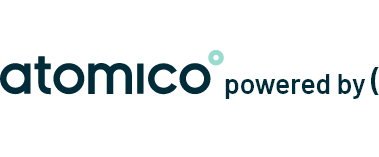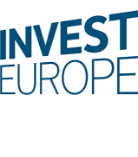State of French Tech
Though France was by no means exempt from the global tech slowdown, there are plenty of reasons to be optimistic about the future of French tech, with an ever-growing talent base and AI innovation on the rise with the likes of Mistral AI. Here, we examine the full story of French tech in 2023.
Total capital invested into the European tech ecosystem in 2023 is on track to reach around $45B, starkly highlighting the impact on capital flows as a result of the shift in the broader macro landscape. This will be down more than half (55%) from the record year of 2021, when investment volumes surpassed the threshold of $100B for the first time.
For France, this represents a decrease of 42% from last year's peak of $14B. The decline is not surprising given the dual effect of many later-stage companies delaying fundraising, as well as materially slower deployment pacing by investors, which have both served to drive the large decline in the prevalence of outsized, growth stage investment rounds - the biggest factor in the lower amounts of capital invested.
While the decline from the peak in 2021 is large, it's worth highlighting that 2023 is on track to be the third-largest year on record by total capital invested, and is on track to come in at four times the volume seen 10 years ago in 2014. In fact, the resetting of investment levels appears to reflect a correction to the long-term upwards trajectory, following two outlier years of overheated activity.
Total capital invested ($B) in Europe and France, 2014 to 2023E
The combination of the withdrawal of crossover investors and the general slowdown in late-stage investment activity is unsurprisingly reflected in a huge decline in the number of so-called mega-rounds, meaning round sizes of $100M or more. In the peak of 2021, there were almost 200 rounds of this magnitude, including more than 50 rounds greater than $250M.
While this number declined slightly in 2022 to 163 rounds of $100M or more (of which 38 were greater than $250M), the first nine months of 2023 saw a far more significant decrease. In the first nine months of 2023, there have been 36 rounds of $100M or more, of which only seven have been sized in excess of $250M.
Despite the decline in mega-rounds, France is still following a positive trajectory, increasing its share of mega-rounds since 2014. In the years before 2020, France often was not represented in mega-rounds. However, in recent years France's representation in such rounds has increased from 4.5% to 19.2% of total European mega-rounds in 2023.
Number of $100M+ rounds, Europe and France, 2014 to 2023YTD
The fact that AI is flourishing under the radar in Europe should not be a surprise. Europe has a strong technical talent pool, owing its strength to world-class scientific and technical institutions and the depth of its engineering talent.
This strength extends into the field of AI. Over the past decade, Europe has not only witnessed a greater than 10x increase in the number of people working in AI roles, but also claims a larger resident population of highly-skilled AI professionals compared to the US.
Of course, many of these AI professionals are working in roles at US-headquartered technology companies that have built a large AI research presence in Europe, such as Alphabet or Meta. But as Mistral AI - a company founded by European former leading AI researchers at Meta and DeepMind - demonstrates, these European-based pools of AI talent have become an incredibly rich breeding ground for the founders and talent behind the next generation of European AI companies. The birthplace of many European champions, France is playing a leading role in the creation and retention of AI talent.
Number of active AI roles by region, 2014 to 2023
Even in the face of challenges in the capital markets and concerning indicators such as layoffs that may impact the perceived attractiveness of joining the industry, European tech has not seen an exodus of talent. In fact, new positions are constantly being created, and talent from outside tech continues to look past any perceived risk to place significant bets on the European tech sector.
Although there has been a levelling off in the rate of increase of net new joiners into the tech industry over the past three quarters, and a very small overall decline in total headcount in Q3 2023, it's remarkable that in just five short years, European tech has expanded its workforce from slightly over one million employees to more than 2.3 million today.
France has grown its headcount in line with the rest of Europe, standing at 2.5 times greater headcount today compared to 2018.
European tech industry employees by quarter, Europe and France, 2018 to 2023YTD
Predictably, a reduction in growth stage funding round volume and a major reset in the valuation environment has led to a huge drop in the number of companies surpassing the billion-dollar valuation milestone for the first time in 2023.
2023 is on track to see the lowest number of new $B+ companies emerge from Europe in the last decade, with just seven as of the publication deadline at the end of October 2023. This is, of course, in stark contrast to 2021's record-breaking total when 108 new companies hit a billion-dollar valuation.
In last year's report we first introduced the concept of de-horned unicorns, $B+ companies whose valuation has dropped below this milestone since first hitting it. In 2022, we mapped 58 dehorned unicorns. This year, that number has reduced slightly, with 50, meaning some companies have seen their valuation lifted back up above the billion-dollar level in 2023. For clarity, when referring to $B+ companies, we have in mind tech companies that command that valuation today.
As mirrored in other charts, France has played a crucial role in producing $B+ companies. In 2014, it produced just 5% of $B+ companies that year. Last year that figure rose to 12%, highlighting this country's growing contributions to the ecosystem.
Number of new $1B+ European tech companies by year, Europe and France, 2014 to 2023YTD
One proxy for the relative scale of startup ecosystems across Europe is the absolute count of startups and scaleups that have received different levels of external capital investment. This does not, of course, tell the full story, as there are many exceptional startups that choose never to raise any external funding, but it is still a useful measure of the relative depth and maturity of tech ecosystems across the region.
Unsurprisingly, the countries that have the largest absolute investment volumes also have the highest number of funded companies. The UK leads with almost 13,000 funded tech companies in total, and has the largest count of companies across all buckets of total capital raised.
The number of funded startups in the UK, France, and Germany (around 23,000) is greater than the total for the rest of Europe combined (around 21,600).
The data is also helpful to better understand the relative distribution of funded companies, according to how much capital they have raised. The vast majority of funded companies (76%) have raised less than $5M in total. This also reveals interesting comparisons between countries in terms of the relative number of companies across the different levels of funding raised. Italy, for example, has a similar number of early stage startups that have raised less then $5M in funding compared to the Netherlands, but far fewer larger-scale companies that have raised $50M or more.
Count of funded companies and their total capital raised, 2023
As highlighted in the Executive Summary, the meteoric rise of tech entrepreneurship in Europe has resulted in the number of new tech startups founded each year in Europe exceeding that in the US for each of the past five years. On average, around 15,200 new tech startups have been founded per year in Europe, compared to 13,700 in the US.
But which countries are the biggest contributors to tech startup formation across Europe? And which countries, if any, are seeing their share of tech startups being founded faster, in relative terms, than those across the rest of the region?
The UK leads the way in terms of the number of tech startups founded each year, accounting for approximately a quarter of all new companies each year in Europe. The fastest-rising country in terms of share of new tech startups created each year is France, which has seen its share increase from 18% in 2019 to 22% in 2023.
While the top 10 countries account for a significant percentage of total tech startup creation each year (83% in 2023), a meaningful share of new tech startups (17%) are being started away from these more established clusters of startup activity.
Share (%) of new tech startups founded per country, 2019 to 2023
Considering their scale, European pension funds have historically punched well below their weight as investors in the region's entrepreneurial and growth ecosystem. As the State of European Tech has called out over the years, when comparing the total assets under management (AUM) of European pension funds, the share from this dedicated to the venture asset class is minuscule.
In 2022, just 0.010% of pension fund AUM was invested into European VCs, in line with the average of the last five years. This is based on the reported assets of European pension funds, standing at $7.8 trillion.
Positively, there has been a small number of notable developments across Europe this year. The UK government, for example, added flexibility earlier this year on a fee cap previously limiting pension funds to invest in VC funds. Furthermore, in October, the Venture Capital Investment Compact was signed by a number of leading UK and European venture firms pledging to work in collaboration with UK pension funds and insurers, with the goal of allocating increased capital to VC in order to support the growth of the UK economy. In Germany, meanwhile, the Ministry of Economy and Climate is in discussions to increase the commitment of German pension funds and insurers to invest in VC. France launched the successor to its Tibi initiative, Tibi 2, to attract up to €7 billion of institutional capital into early stage, deep tech and cleantech investments.
The scale of European pension funds means even a small increase in their share of AUM dedicated to VC would translate into significant volumes of investment flowing into the European tech ecosystem.










